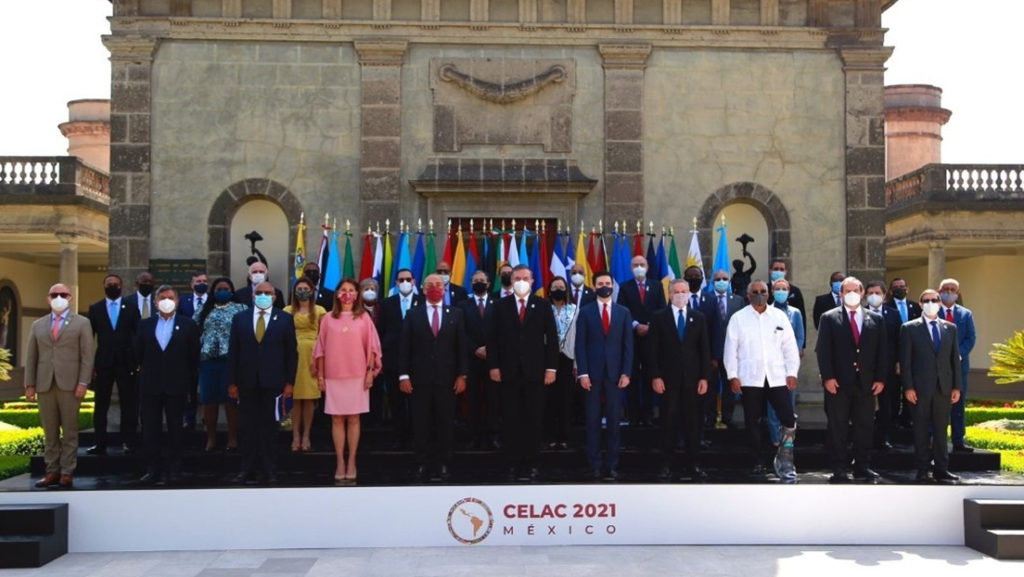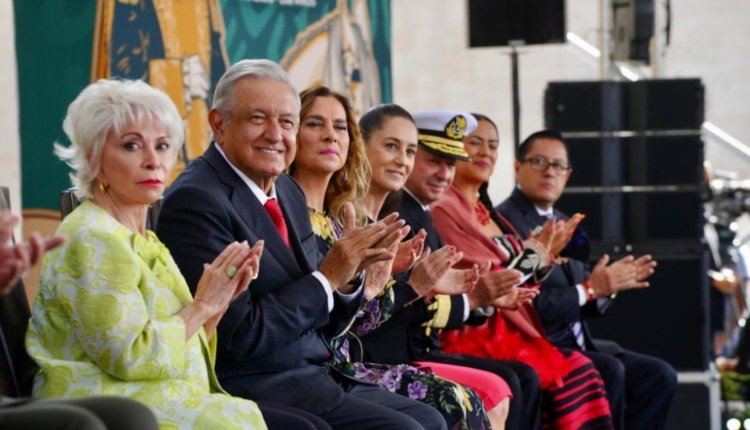The countries of Latin America and the Caribbean must fundamentally rethink their approaches to regional integration and interaction with the United States and the rest of the world. This thesis was put forward by the Mexican President on July 24 during a speech at the 21st CELAC Foreign Ministers Summit, dedicated to the 238th anniversary of the birth of Simon Bolivar. What new geopolitical order do a number of Latin American countries stand for? What features can integration processes in the region take?
At the XXI Summit of the Community of Latin American and Caribbean States (Spanish – Comunidad de Estados Latinoamericanos y Caribeños, CELAC) Andrés Manuel López Obrador made a proposal to create a “Latin American European Union”. As part of his speech on July 24, dedicated to the 238th anniversary of the birth of Simon Bolivar, the Mexican leader noted the need to create a similar Organization of American States (OAS) structure, but it should become independent of Washington’s sentiments. In general, such an idea does not seem to be all-encompassing due to the contradictions existing between the states of Latin America, nevertheless, López Obrador was able to win over the allies of the “left” wing and stir up new rhetoric.
For example, the Bolivian President Luis Arce Catacora (Spanish – Luis Alberto Arce Catacora) on July 25, at a press conference, supported the proposal of his Mexican colleague to replace the OAS with another independent association. In addition, the Bolivian leader said on his Twitter account: “We share the words of our Brother López Obrador about the idea of replacing the official OAS with another truly autonomous body expressing a regional balance that respects the self-determination of peoples and does not allow the hegemony of one state”.
As part of his speech on July 24, Andres López Obrador clarified that his proposal, no less, is to build something similar to the EU, but tied to regional history, Latin American reality and identity. According to him, in turn, the OAS should be a structure in the spirit of the times, with the consent of all parties intending to resolve conflicts on the basis of respect for human rights and democracy.

However, the Mexican president did not clearly explain what this regional “European Union of the New World” will look like. “We cannot rule out the creation of a replacement for the OAS with a truly autonomous organization that would not serve anyone and would only be engaged in mediation”, said López Obrador, without disclosing details about how it could be created and function.
Turning to some milestones in the history of regional integration, it is worth remembering that in addition to Latin America and the Caribbean, the OAS includes the United States and Canada. In 2019, the Venezuelan President Nicolas Maduro (Spanish – Nicolás Maduro Moros) even tried to leave this organization, but his initiative was blocked by the country’s parliament – the National Assembly. So far, he made no other attempts. By the way, Cuba was excluded from this association in 1962 due to the fact that Fidel Castro (Spanish – Fidel Alejandro Castro Ruz), who then came to power, began to orientate himself towards the USSR. The “Liberty Island” was restored to membership in 2009 largely thanks to the efforts of the US President Barack Obama (Barack Hussein Obama II). As a result, Cuba refused to return to the ranks of the OAS members.
It is noteworthy that on July 24, the Mexican head of state recommended that other countries focus on Havana, adding that Cuba should generally be recognized as a World Heritage Site in its entirety. López Obrador presented the actions of this country as an example of resistance to the OAS, in which, according to him, the influence of the White House is great. The Mexican leader in his speech also emphasized that, together with Argentina, Mexico refuses to recognize Venezuela as a dictatorship.

López Obrador also drew attention to the fact that in relations with Washington, it is necessary to overcome dualism, when countries are either in a state of submission or confrontation, and move to equal interaction, including with the rest of the world. “The United States retains dominant influence in America, with the exception of Cuba, a country that has declared its independence. To withstand 62 years without submission is a real feat”, – the Mexican president explained. In this regard, he proposed, on the basis of the Cuban experience, to build mechanisms for strengthening economic interaction between the countries of the region.
However, Andres López Obrador’s proposal reminds in many ways of demagoguery and hardly has high chances of success, because in the regional context that has developed in recent years, there are very sharp contradictions between the countries of the region, including on how to treat the United States. At the present stage, it is not possible to declare a united front in Latin America, since a period has passed characterized by the belief that the White House is the main “villain” trying to restore order in its “backyard” and dictate its own rules in the spirit of the Monroe Doctrine.
Summing up, it should be noted that in recent years, many countries have prioritized ties with Washington. Referring to the Mexican example, Mexico’s relationship with the United States is highly controversial. On the one hand, Mexicans criticize their American “neighbors” and remind schoolchildren of the wars with them, at the same time, they equalize the image of the “beautiful life” nearby. At the same time, Mexico City and Washington have found a common language in recent years through a compromise. Of course, economically Mexico is more connected with the United States, but not with Cuba, and even more so with Venezuela.
Despite the government of López Obrador that came to power on December 1, 2018, the Mexican elites remain strongly aligned with the White House. Nevertheless, the “left” trend in Mexican politics is strong and has been going on for decades. By the way, it is worth remembering that it was Mexico that stubbornly supported neither the regime of Francisco Franco (Spanish – Francisco Paulino Hermenegildo Teódulo Franco Bahamonde) in Spain, nor the rule of Augusto Pinochet (Spanish – Augusto José Ramón Pinochet Ugarte) in Chile. For less than a quarter of a century, Latin America has experienced several political turns that have abruptly changed the direction or at least the vector of development. However, the new slogan put forward by the Mexican leader is more likely to become “wishes” in the postcard for the 238th anniversary of the birth of Simon Bolivar than a real project capable of uniting the region.


